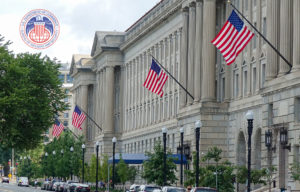News & Insights
Supplemental Joint Alert: BIS & FINCEN Urge Companies To Continue Their Vigilance Against Attempts To Evade Export Controls And Sanctions On Russia & Belarus
On May 19, 2023, the Commerce Department’s Bureau of Industry and Security (“BIS”) and the Treasury Department’s Financial Crimes Enforcement Network (FinCEN) issued a Supplemental Joint Alert urging financial institutions (e.g., banks, credit card operators, and foreign exchange dealers) to continue their vigilance against attempts by individuals and entities to evade U.S. export controls on Russia. BIS and FinCEN published their First Joint Alert on June 28, 2022, in which they identified common transshipment diversion points,[1] potential red flags, and nine (9) high priority Harmonized System (HS) codes representing items that Russia and Belarus seek to acquire for their weapons systems.[2]
The Supplemental Joint Alert, although directed to financial institutions, is relevant for all companies as it provides information useful for conducting customer due diligence, highlights transactional and behavioral red flags that may indicate potential attempts at evasion, and describes the ongoing U.S. Government initiatives aimed to prevent Russia from accessing technology and goods to supply and replenish its military and defense industrial bases. For example—
- The United States and the Global Export Control Coalition (GECC)[3] have imposed sweeping sanctions, export controls, and other economic restrictions against Russia since the start of the invasion of Ukraine in 2022. As a result of these actions, Russia’s military-industrial complex and defense supply chains have been significantly degraded over the past year.
- Several enforcement cases were brought as a result of the efforts of Task Force KleptoCapture against entities and individuals who violated the U.S. export controls on Russia. In addition, the Commerce and Justice Departments recently announced the creation of the Disruptive Technology Task Force, an interagency law enforcement task force charged with targeting illicit actors, strengthening supply chains and protecting critical technological assets from being acquired or used by nation-state adversaries—on May 16th, DOJ and Commerce announced the first five (5) strike force enforcement actions.
- BIS recently expanded its export control restrictions on Russia (as well as Belarus, Iran and Crimea) under the Export Administration Regulations to cut off Russia’s access both to critical components used for advanced military applications and to low-level consumer technologies needed to sustain the war effort.
- In addition to the red flags identified in the 2022 Joint Alert, the Supplemental Joint Alert provides additional red flag examples for companies to consider and evaluate in the context of their own international transactions, as follows:
- Transactions related to payments for defense or dual-use products from a company incorporated after February 24, 2022, and based in a non-GECC country.
- A new customer whose line of business is in trade of products associated with the nine HS codes, is based in a non-GECC country, and was incorporated after February 24, 2022.
- An existing customer who did not receive exports associated with the nine HS codes prior to February 24, 2022, but who is receiving such items now.
- An existing customer, based outside the United States, received exports associated with one or more of the nine HS codes prior to February 24, 2022, and requested or received a significant increase in exports with those same codes thereafter.
- A customer lacks or refuses to provide details to banks, shippers, or third parties, including about end users, intended end-use, or company ownership.
- Transactions involving smaller-volume payments from the same end user’s foreign bank account to multiple, similar suppliers of dual-use products.
- Parties to transactions listed as ultimate consignees or listed in the “consign to” field do not typically engage in business consistent with consuming or otherwise using commodities (e.g., other financial institutions, mail centers, or logistics companies).
- The customer is significantly overpaying for a commodity based on known market prices.
- The customer or its address is similar to one of the parties on a proscribed parties list, such as the BIS Entity List, the SDN List, or the U.S. Department of State’s Statutorily Debarred Parties List.
For existing customers, companies are also urged to pay particular attention to any anomalous increases in the volume or value of orders, or inconsistencies between the items ordered and the customer’s line of business. Where red flags are identified, the Supplemental Joint Alert urges companies to conduct further due diligence, taking actions that include:
- Evaluating the customer’s date of incorporation (e.g., incorporation after February 24, 2022);
- Requesting information about and evaluating the end-user and end-use of the item (e.g., whether the customer’s line of business is consistent with the ordered items); and,
- Evaluating whether the customer’s physical location and public-facing website raise any red flags (e.g., business address is a residence, no website is available).
Previously, on March 2, 2023, the Commerce, Treasury and Justice Departments also published a Tri-Seal Compliance Note providing further examples of the common tactics used by third party intermediaries to evade the export controls and sanctions on Russia and Belarus. BIS’ list of Red Flag Indicators and Best Practices for Preventing Transshipment Diversion posted on the agency’s website are also very useful tools for companies to utilize.
Companies should consider applying the guidance and the real-life evasion examples highlighted in all of these publications as part of their red flag screening and due diligence protocols, as week as utilize them in their recurrent export compliance training for personnel on the frontlines with parties to their international transactions. Please do not hesitate to contact Melissa Proctor (melissa@millerproctorlaw.com) if you have any questions about the Supplemental Joint Alert, previous U.S. Government guidance on export and sanctions compliance and due diligence, and the current sanctions on Russia and Belarus.
[1] The transshipment diversion points for Russia and Belarus identified by BIS include: China, Hong Kong, Macau, Armenia, Turkey, Uzbekistan, Georgia, Brazil, India, Israel, Kazakhstan, Kyrgyzstan, Tajikistan, Mexico, Nicaragua, Serbia, Singapore, South Africa, Taiwan, and UAE.
[2] The 9 High Priority List HS codes are 8542.31, 8542.32, 8542.33, 8542.39, 8517.62, 8526.91, 8532.21, 8532.24, 8548.00.
[3] The GECC includes Iceland, Liechtenstein, Norway, Switzerland, Australia, Canada, the 27 member states of the European Union (EU), Japan, the Republic of Korea, Taiwan, New Zealand, the United States, and the United Kingdom (UK).


